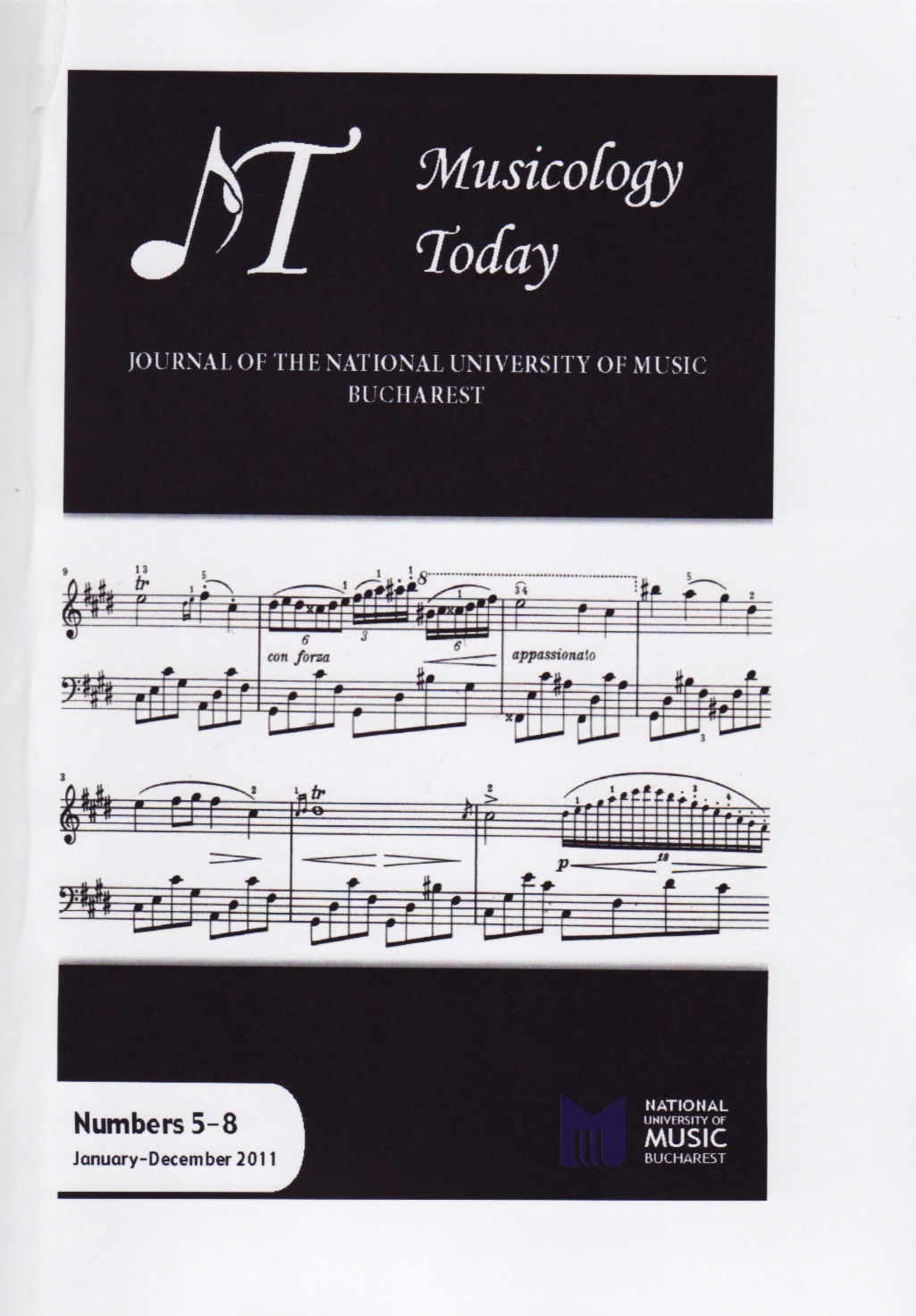Meanings and Gender Issues in Eva Palmer’s Musical Settings of English Poetry: An Ethnomusicological Approach
Meanings and Gender Issues in Eva Palmer’s Musical Settings of English Poetry: An Ethnomusicological Approach
Author(s): John PlemmenosSubject(s): Music
Published by: Editura Universității Naționale de Muzică din București
Keywords: Gender Issues; Eva Palmer’s Musical; English Poetry; Ethnomusicological Approach;
Summary/Abstract: This article deals with the musical life and activity of Eva Plamer-Sikelianou, an American-born wife of acclaimed Greek poet, Angelos Sikelianos (+ 1951). Although she originally got a western musical education as a youth in New York, she managed to study Byzantine and Greek folk music, and eventually to excel herself in both branches as a teacher as well as a composer. She settled with her husband in Delphi, Greece, and began to materialise one of her dreams, that is to revive ancient Greek tragedy in a modern context. To this end, she organised two Delphic Festivals (1927 and 1930) on the ancient site of Delphi, with many artistic activities taking place, among which the performance of Greek drama, Prometheus bound, accompanied by music on ancient modes and rhythms. During II World War, she went back to New York, only to carry on her teaching of Greek music and dance for an American audience. She conceived a model of Greek-Byzantine music applied to English poetry, which, to her eyes, would be the best possible one to attain artistic unity and perfection. She financed the construction of an organ possessing special extra keys to achieve the micro-intervals of Greek music.
Journal: Musicology Today: Journal of the National University of Music Bucharest
- Issue Year: 2/2011
- Issue No: 6
- Page Range: 107-124
- Page Count: 18
- Language: English

